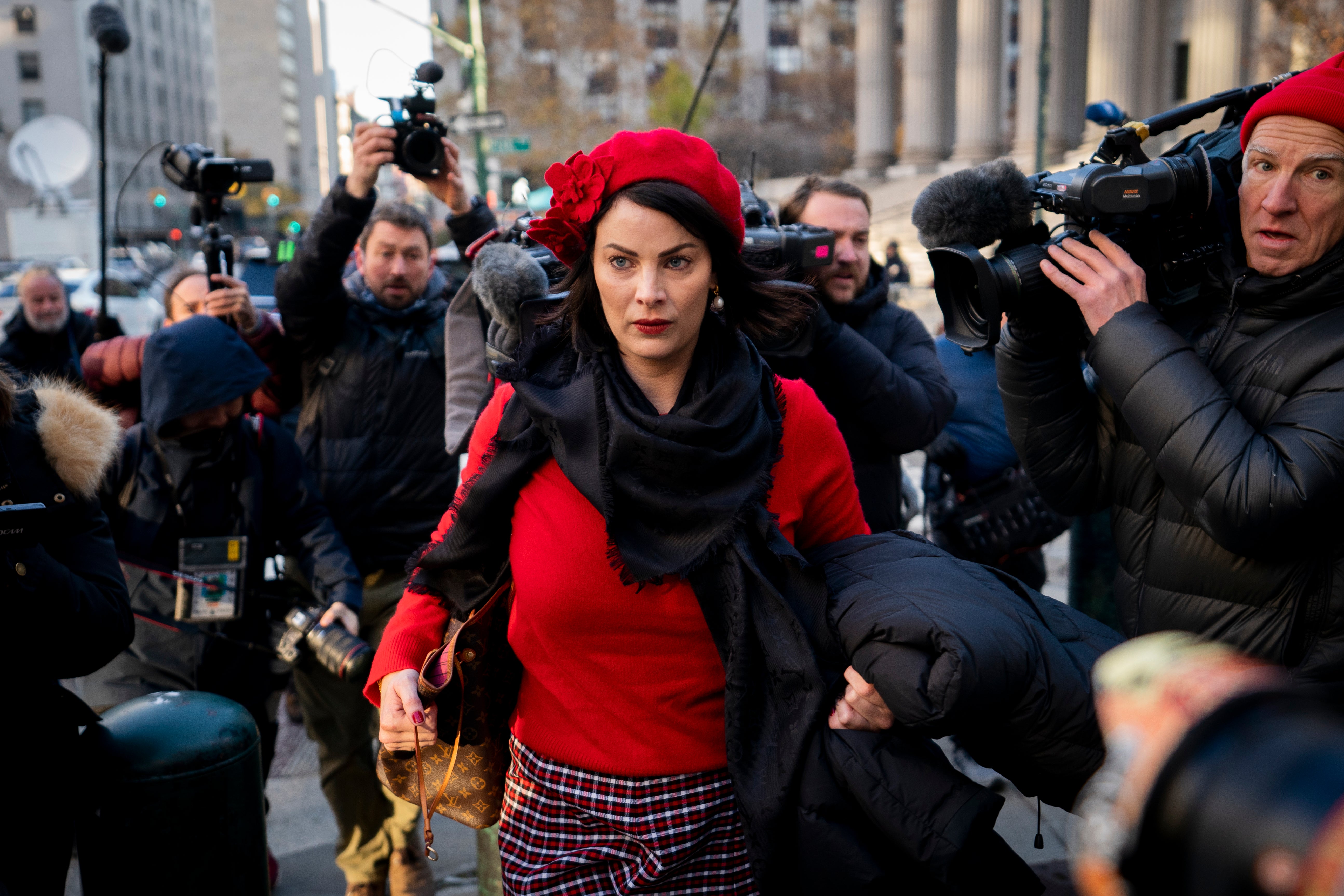The Independent's journalism is supported by our readers. When you purchase through links on our site, we may earn commission.
Ghislaine Maxwell’s trial brought back a phrase we should never use again
It’s a phrase we’ve all become familiar with, but one that does an untold amount of damage to girls and women

The Ghislaine Maxwell trial has revived a meaningless term that needs to be abolished: “underage girls.” By definition, girls are children, and children are underage. The phrase implies that some “girls” are old enough to have sex with adults who aren’t criminals. Call them children, teens, teenage girls, or minors, and call the crime committed against them what it is: sexual abuse. Not “sex with an underage girl.”
Just like the oxymoronic “underage woman” (by any other name, a girl) the term conflates girls and women in a way “men” and “boys” are never collapsed. A Google search for “underage man” yields no hits, but instead, numerous stories about — wait for it — “underage girls.” In the days following Jeffrey Epstein’s 2019 arrest, Jezebel counted over 90 uses of the term on TV and radio alone. Last spring, when allegations surfaced that Matt Gaetz had sex-trafficked minors, it cycled around the news yet again. And it continued with R. Kelly’s recent conviction on eight counts of sex trafficking.
These terms speak to a broader cultural problem: they present girls as sexually mature when it’s convenient (softening charges of sexual abuse) and cast young women as pliable, subordinate children, not adults with sexual agency and autonomy. The recent Britney Spears saga crystallized the conundrum: as journalist Liz Plank tweeted, “When Britney was a child we adultified her and when she became an adult we infantilized her.”
At their mildest, these misnomers are merely confusing: in a Reveal News podcast about a body found near a mountain trail in Kentucky in 1969, the unidentified person is described variously as “a girl,” a “little girl,” “a young girl,” and a “young woman.” (She was 21.) If we call women “young girls,” how do we differentiate them from small children, like the 3 and 5-year-olds mentioned in this (accurately written) headline: “Man Accused of taking Voyeur Photos of Young Girls”? (Calling grown women “young girls” also perpetuates the kind of pathological fixation on youth that’s entrenched in Hollywood, where male actors are still being paired romantically with actresses half their age — even, as in Mank, when the actress is playing an actual historical figure who was older than her husband).
And at their worst, those same misnomers minimize crimes against children. Jamie Loftus’ brilliant Lolita podcast unfurls the many ways Vladimir Nabokov’s novel Lolita, narrated by a pedophile who kidnaps and rapes his stepdaughter, has been misunderstood as a love story between a man and a seductive, sexually precocious 12-year-old girl. Loftus, a sexual abuse survivor, lays out the many ways Nabokov clearly cast his narrator as a monster (Dolores/Lolita cried herself to sleep at night, for starters), clarifying that Nabokov’s “nymphet” was intended as a creepy sobriquet and exploring the numerous adaptations of the novel (notably Stanley Kubrick’s 1962 film, Lolita) that reify and amplify this misperception, often by raising Dolores’ age to draw her closer to womanhood and downplay her abuse. In a 2001 ad for Marc Jacobs’ “Lola” perfume, for example, 17-year-old Dakota Fanning posed in a sheer pink dress, holding the bottle suggestively between her legs. “I knew she could be this contemporary Lolita, seductive yet sweet,” said Jacobs.
The adultification of children is particularly harmful for girls of color. According to a study by Georgetown Law’s Center on Poverty and Equity, its effects are tangible, especially for Black girls, who are assumed to be less innocent and more sexually experienced than white girls, warranting less nurturing, protection and support, and less outcry when they go missing. The disparity contributes to higher rates of discipline at school and harsher treatment in the juvenile justice system. And as the belated R. Kelly conviction confirmed, the abuse of Black girls is routinely overlooked by the very institutions that purport to protect them. “Our reality is that our society just does not view Black women and girls as credible,” Kenyette Barnes, a co-founder of the #MuteRKelly campaign, told The New York Times after the disgraced pop star’s conviction.
Language expresses power. When my doctor refers to “the girls at the front desk” who are grown (even middle-aged) women, he diminishes them. When a local pharmacist calls me, a 61-year-old woman, “young lady,” he not only assumes that I’m benighted enough to take this as a compliment, but also that I aspire to appear young (because isn’t aging pretty much the worst thing that can happen to a woman?) He has never called my 61-year-old husband “young man”; it would register as an insult.
Over the past decade, we’ve mastered a whole new lexicon as gender identity is mapped across a spectrum of possibilities. Likewise, it’s time to employ accurate age-specific language that protects children and respects women — of every age.
Margot Mifflin is an author, journalist, and professor at The City University of New York. Her most recent book is Looking for Miss America: A Pageant’s 100-Year Quest to Define Womanhood (Counterpoint Press).
Join our commenting forum
Join thought-provoking conversations, follow other Independent readers and see their replies
Comments
Bookmark popover
Removed from bookmarks